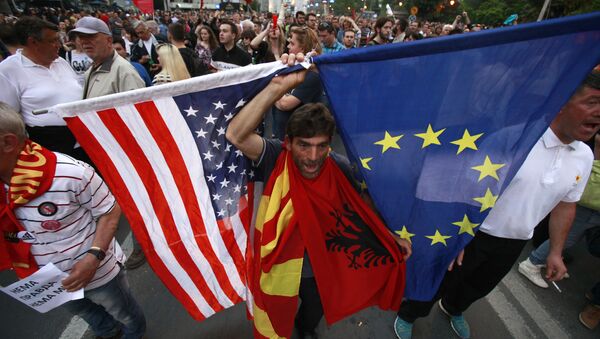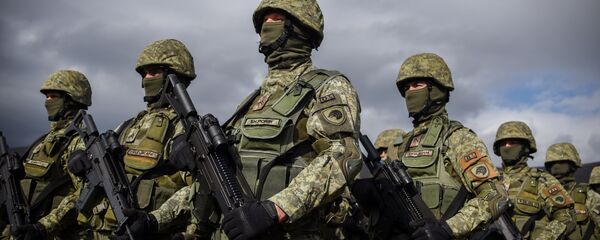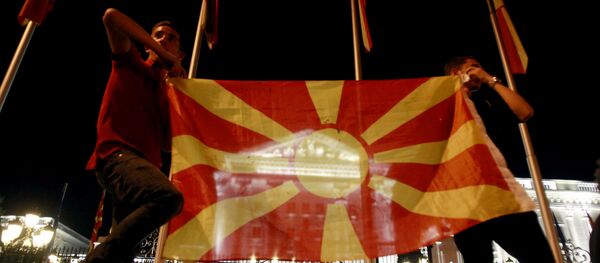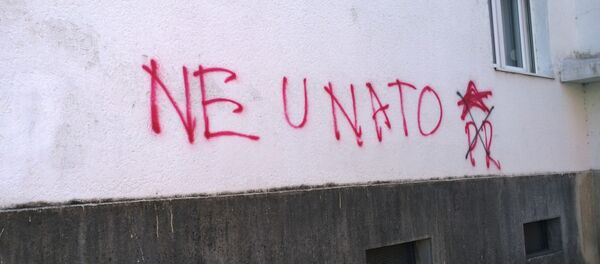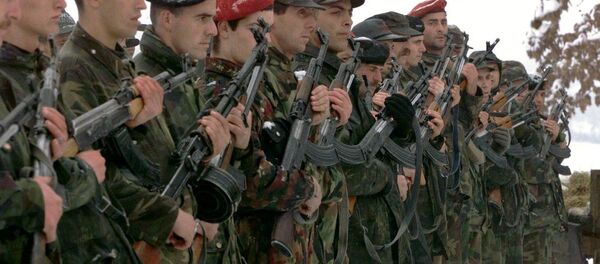Macedonia has been in the throes a political crisis since December 2016, following snap parliamentary elections. Despite the electoral victory of the Democratic Party for Macedonian National Unity (VMRO-DPMNE), led by Prime Minister Nikola Gruevski, Western governments have openly supported the main opposition party – Zoran Zaev's Social Democratic Union of Macedonia (SDSM), unashamedly interfering in the internal affairs of a sovereign state.
Speaking to Sputnik Serbian, Macedonian political scientist Branko Djordjevski explained that Western powers would continue their push to remove Gruevski from power in any way they could, because they need 'obedient' leaders. Secondly, the expert noted, by pressuring Macedonia, Western powers are trying to prevent the spread of Russian influence in the Balkans.
Serbian political scientist Dragomir Andjelkovic agrees with this assessment. He suggested that any country which might want to expand any sort of constructive dialogue with Russia is seen as a 'problem' for the West. Gruevski, for example, is thought to have fallen out of favor with Brussels and Washington after he decided to increase Russian-Macedonian cooperation in the energy sector.
"When Gruevski came to understand that the Russian gas pipeline through Macedonia would be a major chance for the country's development, and that Macedonia would become part of the Turkish Stream, or an updated version of the South Stream, the process to overthrow him began: clashes started between Albanian militants and Interior Ministry forces in Kumanovo," a major city in the country's northeast, Andjelkovic noted.
"Serious financial injections were also made into the opposition, after which Zaev's rating began to approach Gruevski's, even though until only recently the opposition politician did not enjoy any broad support among Macedonians," he added.
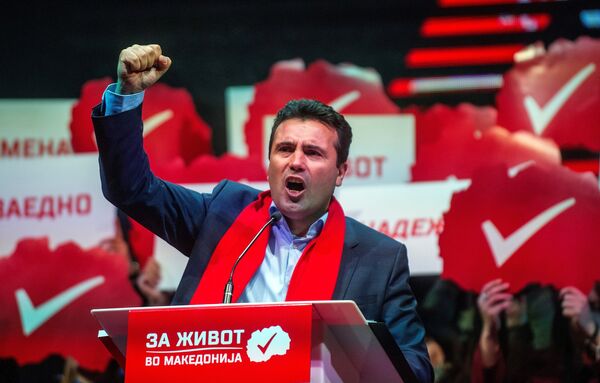
"If we take into account that the EU and the remnants of the old US administration insist that the SDSM and Zaev form a government which includes almost all of Macedonia's Albanian parties, it follows that they are trying to make Macedonian politics dependent on these same parties," the politician explained.
"That," Stoilkovic warned, "creates the basis for Macedonia's split from Serbia, and that the same time, the displacement of Russia, given that Moscow has become a serious economic partner for Skopje in the last few years." For example, according to the Macedonian-Russian Chamber of Commerce and Industry, last year alone, Macedonia increased its exports to Russia by 39.5% compared to 2015.
And while both Gruevski and Zaev formally support Macedonia's entry into the EU and NATO, the second politician is doing so recklessly, failing to take account of Macedonia's national interests, Stoilkovic added.
For example, "Gruevski and the VMRO-DPMNE were able to cope with pressures, and did not impose sanctions against Russia. The Gruevski government had no ideological prejudices when it came to economic cooperation with Russia, China or any other eastern partner." The same could not be said about Zaev, the politician stressed.
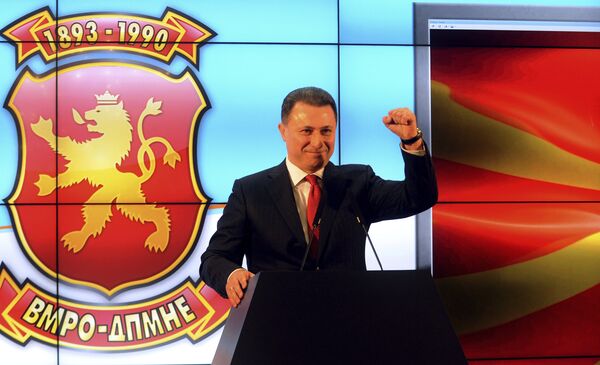
For his part, Serbian political scientist Aleksandar Pavic believes that the Albanian factor in being used to not only block projects involving Russia, but those of Washington's other geopolitical rivals as well. For example, the current unrest facing Macedonia is threatening to put the brakes on a Chinese project to build the Thessaloniki-Budapest high-speed railway line.
"Instability in Macedonia spells the death of both [Russian and Chinese] projects," the expert said. "NATO wants to see the formation of a government in Macedonia which is anti-Macedonian as soon as possible, and the Albanian minority would be the guarantor of the embodiment of the globalist vision in Washington, which is trying to put the Trump administration before a fait accompli in every region where it may be possible."
"This is most evident in Montenegro, where the Albanian minority became Prime Minister Milo Dukanovic's key ally in moving the country closer to NATO membership. The fact is that ethnic Albanians perceive integration into the Alliance as an opportunity to erase the borders between the states in which they live."
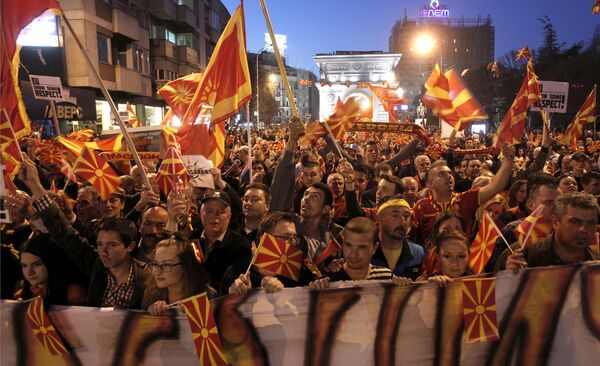
As for the Kosovo breakaway, Safonov recalled that there, local politicians' rhetoric has long come to equate Russia with something negative. Pristina has accused Moscow of preparing to divide the region, and suggested that Russia's provision of military assistance to Serbia is a threat to the region's security. Sometimes, this rhetoric is taken to absurd new levels, the expert said.
For example, Kosovo's politicians reacted with hostility to Serbian Prime Minister Aleksandar Vucic's recent proposals for Western Balkan economic integration, even though the idea was supported by the EU itself, including European Commissioner for Regional Policy Johannes Hahn. Kosovo Minister of Foreign Affairs Enver Hoxhaj blasted the common market idea as "pro-Russian" and "contrary to European ideals."
"They're trying to please the West and scold Russia, and that's not smart," Spahiu stressed. "Someone may like Vucic's idea, while others may not, but it is within the spirit of European integration. Kosovo's politicians are more inclined to adopting patriotic positions than actually doing something patriotic – like developing a policy of good neighborliness," the observer stressed.

